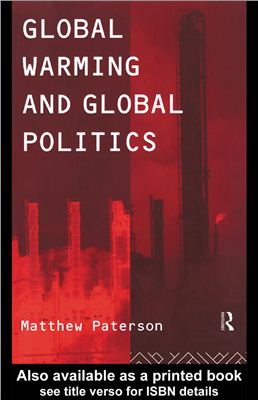Routledge, 1996, 238 pages
Environmental Politics
Global warming has become established as the major environmental issue on the inteational political agenda. It is also commonly understood to be the most difficult politically to solve. The entrenched interests of powerful industrial corporations as well as those of many nation-states are severely threatened by attempts to implement reductions in greenhouse gas emissions.
Matthew Paterson provides the first systematic account of the politics of global warming. He examines the major theories within the discipline of inteational relations, and how they might be able to provide accounts of the emergence of global warming as a political issue, and of the negotiations leading up to the signing of the Framework Convention in Rio de Janeiro in 1992, and beyond.
Environmental Politics
Global warming has become established as the major environmental issue on the inteational political agenda. It is also commonly understood to be the most difficult politically to solve. The entrenched interests of powerful industrial corporations as well as those of many nation-states are severely threatened by attempts to implement reductions in greenhouse gas emissions.
Matthew Paterson provides the first systematic account of the politics of global warming. He examines the major theories within the discipline of inteational relations, and how they might be able to provide accounts of the emergence of global warming as a political issue, and of the negotiations leading up to the signing of the Framework Convention in Rio de Janeiro in 1992, and beyond.

